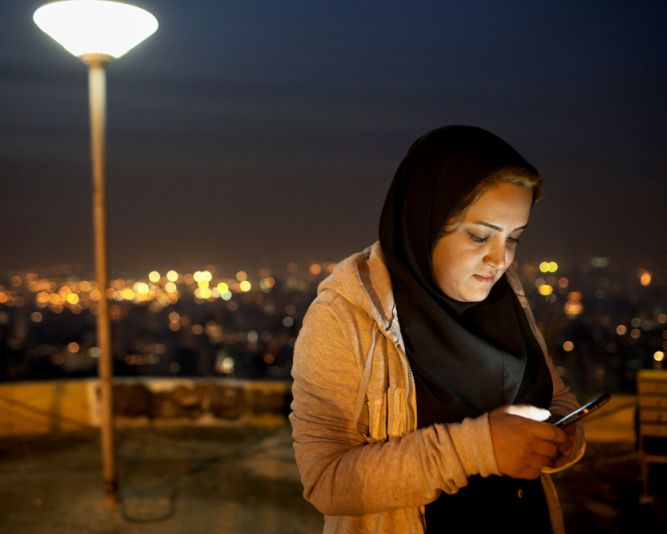By: Amy Balog
Send to a friend
The details you provide on this page will not be used to send unsolicited email, and will not be sold to a 3rd party. See privacy policy.
Digital technologies and networks are revolutionising business in the Middle East, the Saudi Gazette reported this month. Firms in the region are increasingly adopting technologies such as the ‘internet of things’, a network system that is predicted to boost productivity by 30 per cent between now and 2018. The story was based on two reports: one by business services company Deloitte and another by forecasting firm The Economist Intelligence Unit. [1,2]
One of Deloitte’s most striking predictions is that the region’s online consumer market is set to nearly double between 2015 and 2018 to reach US$30 billion. I spoke to Duncan Stewart, director of technology, media and telecommunications research at Deloitte Canada and coauthor of the report, to find out which new technologies make up this ‘digital Islamic economy’ and what their impact might be on people in the Middle East and further afield.
“In some of the smart city and smart sensor type applications, IoT sometimes replaces electric, gas and water meter readers.”
Duncan Stewart, Deloitte, Canada
Stewart tells me the region is an early adopter of several of the latest technologies to shake up consumer markets and services. Across the Middle East, governments are providing services such as simplified utility bill payments through mobile devices. These m-gov applications enable faster information flow and provide a highly personalised customer service, among other benefits.
And companies and countries across the Middle East are not just using these services, but are also nurturing digital innovation. According to the Deloitte report, nearly a quarter of all m-gov services available worldwide were developed in the region, with the United Arab Emirates making huge inroads.
But whereas m-gov services improve the lives of ordinary people, Stewart says that other new technologies may offer them little benefit. In fact, such technologies often replace human labour.
This is particularly true with the ‘internet of things’ (IoT) — an internet system that allows physical objects to connect and share data with each other, manufacturers, applications and consumers. “In some of the smart city and smart sensor type applications, IoT sometimes replaces electric, gas and water meter readers,” Stewart explains. “It can also, for instance, automate inspection on roadways.” And this eliminates jobs.
As well as this jobs threat, the IoT is also unlikely to be of any practical use to ordinary people. This is because administering such devices is complex. The real benefits, Stewart adds, are the massive streams of data these connected devices produce. For example, oil and gas companies now use networks of sensors to collect and share data on machinery and pipelines. Currently, it is only really big corporations like these that will benefit, Stewart says.
As for individuals, for smaller businesses in the Middle East, the real challenges are more basic. It’s not about using IoT better, but about having a website and being able to send and receive emails, Stewart says. And this is likely to be the case with small firms in low-income countries worldwide, he says.
It is this “connectivity chasm” that is the real issue for small businesses and their staff, Stewart says. “We expect to see governments around the world pay attention not just to the average speed, but also to the gap between the fastest and the slowest, with the aim of making this connectivity chasm narrower.”
References
[1] Paul Lee and Duncan Stewart Technology, media & telecommunications predictions 2015: Middle East (Deloitte, 29 March 2015)
[2] The hyperconnected economy: phase 2 — Hyperconnected organisations (The Economist Intelligence Unit, 4 May 2015)














